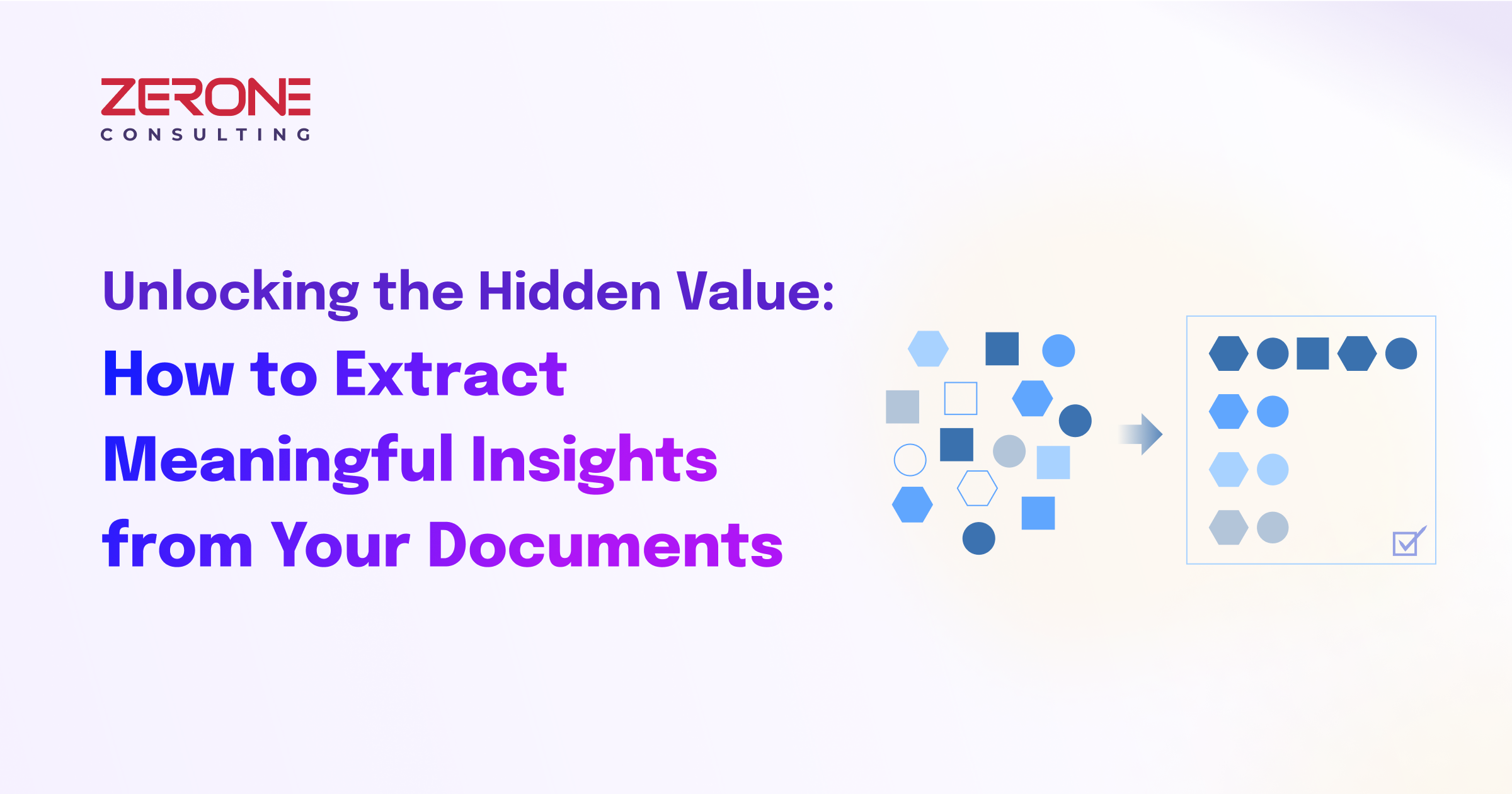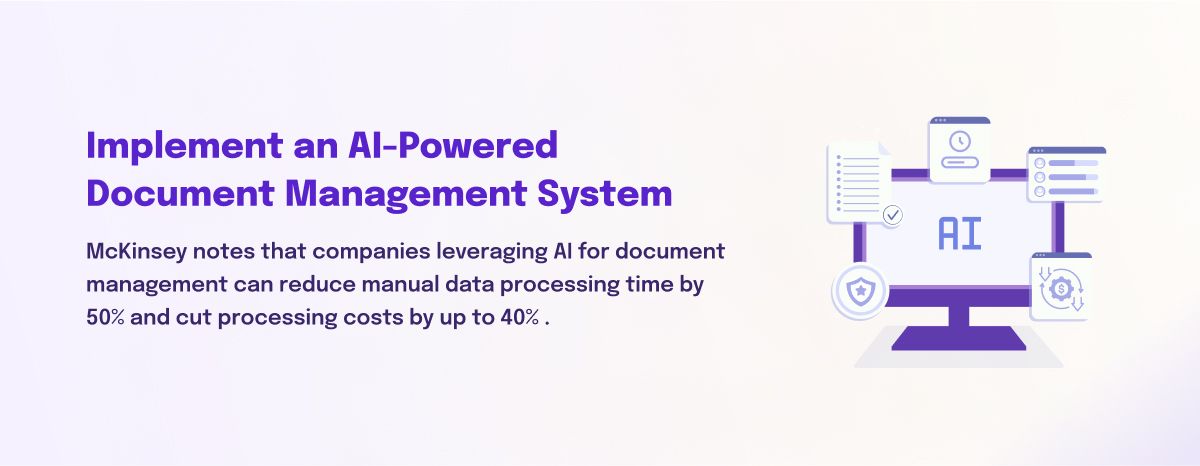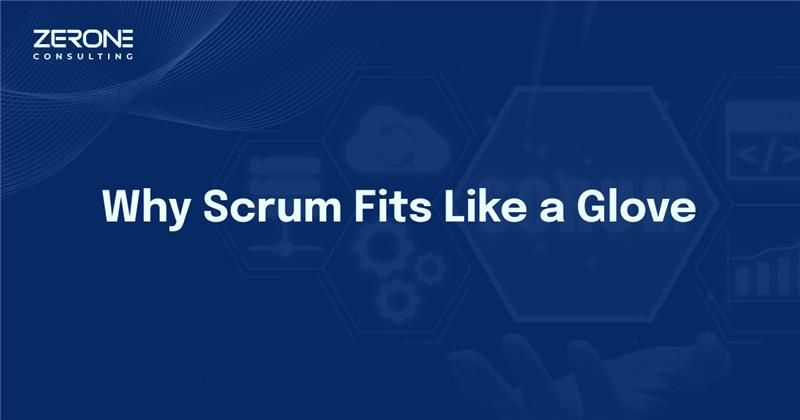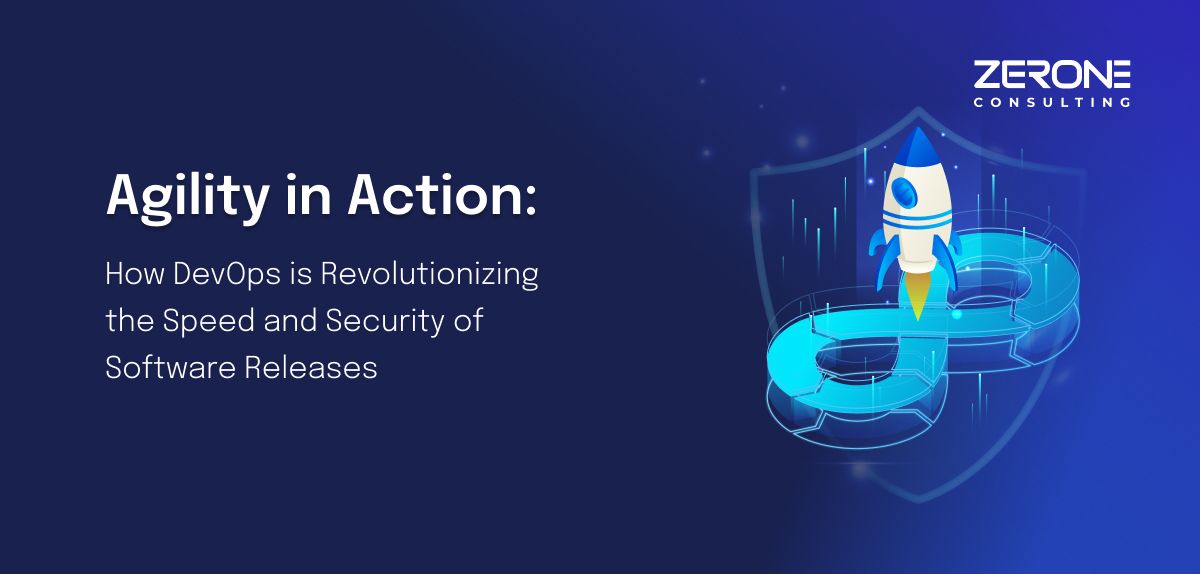Unlocking the Hidden Value: How to Extract Meaningful Insights from Your Documents
In the data-driven era, businesses are inundated with a colossal amount of information. From contracts and invoices to emails and reports, the volume of documents generated daily can be overwhelming. However, hidden within these documents is a wealth of valuable insights waiting to be uncovered. For business owners, the ability to extract meaningful insights from documents is not just a matter of efficiency but a strategic imperative that can drive informed decision-making and competitive advantage. This blog explores advanced methods and technologies to unlock the hidden value in your documents, with insights from leading sources like HBR, WEF, McKinsey, Forbes, and Deloitte.

The Need for Advanced Document Analysis
Traditional document management systems focus on storage and retrieval but often fall short in extracting actionable insights. According to McKinsey, businesses spend an average of 19% of their time searching for information. This inefficiency translates into significant operational costs and missed opportunities. Advanced document analysis tools, powered by artificial intelligence (AI) and machine learning (ML), promise to revolutionize how businesses handle documents, transforming static data into dynamic insights.
AI and Machine Learning: The Game Changers
AI and ML are at the forefront of advanced document analysis. These technologies enable automated data extraction, categorization, and interpretation. Forbes reports that companies using AI for document processing have seen up to a 90% reduction in processing times and a significant increase in accuracy.

Natural Language Processing (NLP)
NLP is a subset of AI that focuses on the interaction between computers and human language. Advanced NLP algorithms can analyze unstructured data, such as text in documents, to extract relevant information. For instance, Deloitte highlights that NLP can be used to automatically identify and extract key terms and phrases from legal contracts, significantly reducing the time required for legal reviews.
Optical Character Recognition (OCR)
OCR technology converts different types of documents, such as scanned paper documents, PDFs, or images captured by a digital camera, into editable and searchable data. The World Economic Forum (WEF) notes that OCR, combined with AI, can enhance data accuracy and streamline workflows, particularly in industries like finance and healthcare where document accuracy is critical.
Real-World Applications and Success Stories
Several leading organizations have successfully implemented AI-powered document analysis to unlock hidden value from their documents.
JPMorgan Chase: Contract Intelligence (COiN)
JPMorgan Chase has developed a machine learning program called Contract Intelligence (COiN) that interprets commercial loan agreements. According to McKinsey, this system reviews 12,000 annual commercial credit agreements in seconds, significantly reducing the time and effort required for document review and freeing up legal staff for higher-value work.
KPMG: Document Review and Compliance
KPMG uses AI to enhance its document review and compliance processes. Forbes reports that KPMG's AI systems can review and analyze vast amounts of documents, ensuring compliance with regulatory requirements and reducing the risk of human error.
Novartis: Accelerating Research and Development
In the pharmaceutical industry, Novartis uses AI-powered document analysis to accelerate research and development. Deloitte highlights that AI helps Novartis analyze clinical trial data more efficiently, speeding up the drug discovery process and bringing new treatments to market faster.
Statistical Insights and Industry Impact
The adoption of AI-powered document analysis tools is not just a trend but a significant shift in how businesses operate. Here are some compelling statistics:
Operational Efficiency
According to a study by Deloitte, businesses that implement AI for document processing can reduce the time spent on document-related tasks by up to 90%. This leads to substantial cost savings and operational efficiencies.
Error Reduction
AI-driven document analysis can reduce errors by up to 85%, according to Forbes. This minimization of errors is crucial in industries where accuracy is paramount, such as healthcare and finance.
Scalability
AI systems can handle large volumes of documents simultaneously, making them highly scalable solutions for businesses experiencing growth or fluctuating document processing needs. McKinsey notes that scalable AI solutions are essential for maintaining efficiency and competitiveness in a rapidly changing market.
The Future of Document Analysis
As AI and ML technologies continue to evolve, the capabilities of document analysis tools will expand. Here are some future developments to watch:
Predictive Analytics
Future AI systems will not only extract insights from documents but also predict trends and outcomes based on the analyzed data. This capability will enable businesses to make proactive decisions and stay ahead of market changes.
Enhanced Security and Compliance
With growing concerns about data privacy and security, future document analysis tools will incorporate advanced security features to ensure compliance with regulations like GDPR and HIPAA. The World Economic Forum emphasizes the importance of secure AI systems in maintaining trust and compliance.
Integration with Other Technologies
AI-powered document analysis will increasingly integrate with other technologies such as blockchain for enhanced transparency and security. Blockchain's immutable ledger can provide an additional layer of verification for document transactions, ensuring authenticity and reducing fraud.
Conclusion
In today's data-driven world, efficiently managing and analyzing vast amounts of structured and unstructured data is crucial for business success. AI-driven document analysis systems, such as DocuSenze, offer streamlined document management with features like automated metadata extraction, intelligent query handling for precise information retrieval, and advanced machine learning and generative AI for deeper data insights. Enhanced text analytics, intelligent search and indexing, and custom dashboards for data visualization further empower organizations to transform data into actionable insights. Robust compliance and data privacy features ensure secure handling of sensitive information, while seamless teamwork and information sharing promote a collaborative work environment. By adopting these systems, businesses can revolutionize their processes, turning data challenges into opportunities for growth and innovation.
We can help!
Why Scrum Fits Like A Glove
#Customapplicationdevelopment
Mvps - A Silver Bullet In Software Development
#Customapplicationdevelopment



